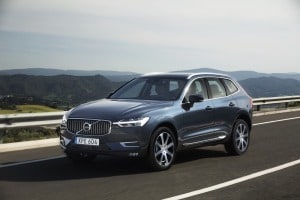Unintended Consequences Of Meeting Proposed Fuel Economy Standards?

Last week, the National Highway Traffic Safety Administration (NHTSA) and the U.S. Environmental Protection Agency (EPA) held a hearing in San Francisco for the public to provide comments regarding the recently proposed Corporate Average Fuel Economy (CAFE) standards for 2017 to 2025. Edmunds.com welcomed this opportunity to provide its assessment of the impact of the proposed standards on consumers. While most of the parties present commented only on the potential benefits of the proposed standards, Edmunds.com raised a few concerns about whether the proposed standards had properly accounted for potential harms to consumers, namely through decreased competition and/or innovation in the auto industry. Here is the testimony I presented on behalf of Edmunds.com:
"My name is Lacey Plache and I am Chief Economist for Edmunds.com, the leading automotive information Web site for consumers.
I am here today to testify on Edmunds' assessment of the positives and negatives for consumers of the latest proposed CAFE standards for 2017 to 2025. I'd like to first note that Edmunds.com agrees with the motivation behind the proposed CAFE standards. That is, we agree that it is necessary for the government to intervene in the market in order to significantly reduce vehicle emissions and decrease reliance on foreign oil.
We have been closely following the CAFE rulemaking process and we feel this process needs to better incorporate the consumer point of view. Many parties involved in the CAFE process have asserted why the proposed rules "should" make sense for consumers, why consumers "should" embrace these rules, how consumers "should" benefit despite higher vehicle prices, and so on. The problem is that while they purport to represent consumers, these parties typically do not represent consumers. In our view, it is better to go straight to the source rather than to presume to know what is best for a particular group.
We appreciate the opportunity that these hearings offer to provide our perspective on how consumers could respond to the proposed standards. Edmunds.com is in a unique position to offer a genuine consumer perspective because we track shopping behavior by some 18 million unique consumers who visit our site each month, many of whom are in the market for a vehicle. We also track transactions. This information allows us to offer insight on how consumers make decisions, based on real data about the decisions they make. Our shopping behavior analytics and our models of vehicle purchases throughout the U.S. market illuminate contradictions in what the experts say consumers "should" want to buy versus what they actually do buy, including with respect to fuel economy.
Based on our understanding of consumer decision-making with respect to vehicle purchases, here are 3 key ways in which we see the proposed standards affecting consumers:
1) The improved fuel economy results for the proposed CAFE standards for 2017 to 2025 are based on production forecasts and do not account for how consumer demand for and willingness to pay for fuel economy will keep pace with the more fuel efficient fleet built. To date, consumers have demonstrated relatively little preference for high mileage vehicles and then usually just for brief periods of high gas prices. If reality differs significantly from key assumptions used in these forecasts, for example if gas prices drop and consumer demand for fuel efficiency then decreases, a disconnect could arise between what consumers want and what automakers supply under the proposed standards. This has the potential to result in more limited choice, higher prices, and decreased auto sales.
2) By their nature, the proposed CAFE standards force automakers to focus their efforts on improving fuel economy. This dictates the nature of competition: automakers focus on fuel economy rather than letting consumer preferences determine on what basis automakers compete. This focus on fuel economy for all automakers limits competition on other dimensions, such as safety, comfort, design, and electronics. In fact, the focus on fuel economy could limit innovation of these other features, especially for automakers that have fewer resources or that need to work relatively harder to meet their fuel economy targets. Moreover, the proposed rules have the potential to limit innovation on fuel economy itself by offering favored status to certain technologies via special credits, which could deter automakers from developing other technologies.
Decreased competition or innovation of any features, including fuel economy, poses the risk that vehicles will be less differentiated, and thus offer decreased utility to certain consumers, especially those who strongly value the affected features. This could decrease new car sales if consumers are less motivated to replace their cars as frequently and/or if consumers turn to used cars. Given the sizable contribution of auto sales to the U.S. economy, any slowdown in auto sales has the potential to generate significant adverse effects in other parts of the economy as well.
3) The multiple measures of "MPG" that have emerged from the rulemaking process add excessive complexity to the consumer decision-making process, making it harder, not easier, for consumers to assess fuel economy and decide which vehicle works best for them.
To address these issues, we would make the following changes to the proposed standards:
First, the current proposal needs to address the potential consequences of the mandated increased focus on fuel economy for competition and innovation in the automotive industry. The proposed rules need to more fully explore how such consequences could force consumers to make sacrifices to get the desired emissions results.
Second, the current proposal needs to demonstrate a fuller understanding of consumer demand for vehicles and how adding higher prices, decreased innovation and choice, and excessively complex information could affect consumer decision-making on new vehicle purchases and potentially result in lower auto sales.
We encourage the EPA and the NHTSA to consider these issues and are happy to answer any questions you may have. Thank you again for the opportunity to testify."
Lacey Plache is the Chief Economist for Edmunds.com. Follow @AutoEconomist on Twitter.





